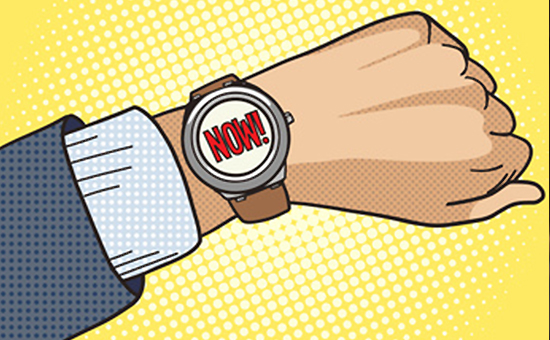Bob Nease, the former chief scientist of Express Scripts, and the author of ”The Power of Fifty Bits: The New Science of Turning Good Intentions into Positive Results” explains in Fast Company how to get on top of all these annoying things that need to be done.
“No one has to nag us to eat, drink, or nap,” writes Nease. “These are all things that are good for us in the long run. But so are turning that report in on time and changing the oil in the car. Not every beneficial behaviour causes us to procrastinate. There’s only one factor that seems to separate the good behaviours that we do easily from those we routinely put off doing: how good they feel.”
In other words: We only do stuff that feels good now. The reason for that sits in our brain: the neocortex weighs the benefits of a behaviour against its costs. Very often, the neocortex comes to quite reasonable conclusions - that, for instance, the benefits of dieting and exercising outweigh the costs of being overweight.
Still, there is the limbic system, the oldest part of our brain, and it seems to care only about what’s happening right now. So if a behaviour means hassle upfront whereas the benefits are in the distant past, the limbic system isn’t interested in your plans.
“The interplay and occasional competition between these two systems explains why we plan to behave better and just as earnestly put off doing so when the time comes. When it comes to planning, the neocortex calmly notes that the benefits outweigh the costs, while the limbic system takes a nap. And when it comes to doing, the limbic system screams so loudly about the present costs that the neocortex has little chance of pulling through.” That at least is Nease’s conclusion.
Basically, if you want things done, the neocortex needs some active help.
Nease suggests these three strategies:
- Outsource the upfront hassles of a beneficial behaviour. Sometimes it's easy: If you're always late paying your utility bill because it just never makes it to the top of your to-do list, sign up for automatic billing. Ditto when it comes to savings for retirement. Automate the routines and processes you don't enjo
- Make the right behaviour more attractive in the here and now, and the tempting but undesirable choice less so. For example, to boost your chances of exercising, listen to music while you work out, join a group that exercises together, or play a sport where your team relies on you. You can also try to make a contract with a friend that will force you to pay a penalty each time you fail to engage in the behaviour you desire.
- Aim low, then ramp up. If your plan is to run four miles, and you’re having a tough time rolling out of bed and hitting the pavement, focus instead on running just two. That can increase the likelihood that you’ll get started and decrease the amount of pain you'll experience that might make you fall short.
Find full report here:
How To Finally Stop Procrastinating (For Real This Time)

